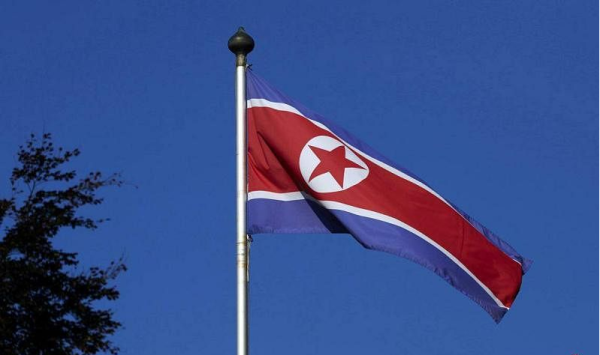
According to a series of recent media reports, North Korea will close its embassies in Uganda, Angola, and Spain, as well as its consulates in Hong Kong, and is preparing to continue closing up to 12 embassies. This is a significant diplomatic shift, and some observers say it may herald severe economic challenges. The official media of North Korea have not yet publicly explained the reason for the closure.
The Ministry of Unification of South Korea stated that North Korea has established formal relations with 159 countries. Prior to the withdrawal of embassies from African countries such as Angola, Uganda, and Hong Kong, it had embassies in 53 countries worldwide, including 47 embassies, 3 General Councils, and 3 representative offices.
International sanctions pressure
According to the first resolution passed by the United Nations Security Council in 2006 regarding North Korea's nuclear weapons program, North Korea is prohibited from participating in extensive global trade activities. With the increasing pressure of sanctions, North Korea has expanded its economic ties with Africa, dispatched construction workers to Africa, and exported large communist style statues erected on public squares. In recent years, some African countries, including Angola, have taken measures to terminate contracts with North Korean construction companies and demand that North Korean workers leave to comply with United Nations sanctions.
However, it is currently unclear how these developments will affect North Korea's decision to close its embassies in Uganda and Angola. In fact, despite North Korea's rapid expansion of its nuclear arsenal, the pressure of multilateral sanctions against North Korea has remained stable for many years. This is because North Korea's main international supporters, Russia and China, refuse to support the implementation of more sanctions by the United Nations Security Council.
Embassy unable to maintain operations
The South Korean Ministry of Unification pointed out that North Korea has recently closed its diplomatic missions in Africa, which may be attributed to increased international sanctions on North Korea, which has hindered North Korea's way of earning foreign exchange and prevented it from raising operating expenses for overseas embassies.
South Korean officials have stated that the North Korean Embassy in Germany has been found renting out dormitories and sports venues as wedding halls and youth tourism hostels. In addition, due to various countries strengthening the crackdown on North Korea's smuggling of cigarettes and drugs, North Korea has had to rent out some embassy buildings to make money.
Some media reports suggest that many North Korean embassies abroad maliciously use diplomatic immunity and diplomatic bags to raise operating expenses for illegal transactions such as smuggling. Especially, the North Korean embassy in Africa earns foreign exchange through channels such as building bronze statues, exporting weapons, and dispatching medical personnel. However, as the international community strengthens sanctions against North Korea, North Korea's foreign exchange earning activities are facing difficulties.
National economic difficulties
Some observers suggest that the closure of the embassy may actually indicate broader economic problems in North Korea. Former senior North Korean diplomat and current South Korean legislator Tae Yong ho said the closure of the embassy "proves that North Korea is in economic difficulties".
Tai Yonghao posted on Facebook that the difficulties faced by North Korea can be seen as the second version of the "difficult march", namely the famine of the 1990s, which could cause millions of deaths. North Korea claimed to have had a good harvest this year, but recent defectors from North Korea complained about hunger.
The statement from the South Korean Unification Ministry stated that this may be a sign of the increasingly difficult economic situation in North Korea, as it feels powerless to maintain at least diplomatic relations with its traditional friendly country.
Japan's Yomiuri Shimbun reported that North Korea plans to close at least 10 embassies and consulates, including the consulate in Hong Kong, mainly due to economic difficulties.

Since 2022, the Fed has cumulatively reduced its balance sheet by $2.4 trillion through quantitative tightening (QT) policies, leading to a near depletion of liquidity in the financial system.
Since 2022, the Fed has cumulatively reduced its balance sh…
On December 11 local time, the White House once again spoke…
Fiji recently launched its first green finance classificati…
Recently, the European Commission fined Musk's X platform (…
At the end of 2025, the situation in the Caribbean suddenly…
The U.S. AI industry in 2025 is witnessing a feverish feast…